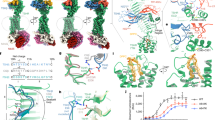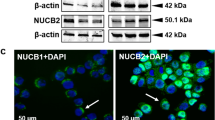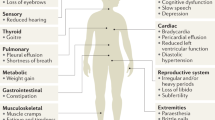Abstract
THYROID-STIMULATING hormone markedly stimulates phosphatidylinositol turnover in sheep thyroid gland. The enzyme catalysing the degradation of phosphatidylinositol in animal tissues can split the phospholipid, with the formation of a diglyceride and a new cyclic ester, D-myoinositol-1: 2-cyclic phosphate as well as D-myoinositol-1-phosphate2,3. Increased phosphatidylinositol turnover has been described in a variety of conditions in which cells are stimulated to secrete or into other hyperactivity. The physiological possibilities of this degradation are obvious, and it was suggested2,3 that the catabolism of phosphatidylinositol and the release of inositol cyclic phosphate might be more directly relevant to the cell stimulation than to the biosynthesis involved in the turnover. Such an hypothesis is attractive, for an accumulation of phosphatidylinositol has never been demonstrated during stimulated conditions. In addition Ca2+ is an essential requirement for the formation of inositol cyclic phosphate as well as playing an important part in secretory processes4.
This is a preview of subscription content, access via your institution
Access options
Subscribe to this journal
Receive 51 print issues and online access
$199.00 per year
only $3.90 per issue
Buy this article
- Purchase on Springer Link
- Instant access to full article PDF
Prices may be subject to local taxes which are calculated during checkout
Similar content being viewed by others
References
Freinkel, N., Endocrinology, 61, 448 (1957).
Jungalwala, F. B., Freinkel, N., and Dawson, R. M. C., Biochem. J., 123, 19 (1971).
Dawson, R. M. C., Freinkel, J., Jungalwala, F. B., and Clarke, N., Biochem. J., 122, 605 (1971).
Rasmussen, H., Science, 170, 404 (1970).
Dawson, R. M. C., and Clarke, N., Biochem. J., 127, 113 (1972).
Michell, R. H., and Lapetina, E. G., Nature New Biology, 240, 258 (1972).
Michell, R. H., and Lapetina, E. G., Biochem. Soc., Trans., 2, 103 (1973).
Jard, S., and Bernard, M., Biochem. Biophys. Res. Comm., 41, 781 (1970).
Dousa, T., and Rychlik, I., Biochim. Biophys. Acta, 204, 10 (1970).
Thompson, W. J., and Appleman, M. M., Ann. NY Acad. Sci., 185, 36 (1971).
Hokin, M. R., Hokin, L. E., Saffran, M., Schally, A. V., and Zimmermann, B. U., J. Biol. Chem., 233, 811 (1958).
Wilber, J. F., Nagel, T. C., and White, W. F., Endocrinology, 89, 1419 (1971).
Fisher, D. B., and Mueller, G. C., Biochim. Biophys. Acta, 248, 434 (1971).
Lacy, P. E., Walker, M. M., and Fink, C. J., Diabetes, 21, 987 (1972).
Freinkel, N., and Cohanim, N. J., J. Clin. Invest., 51, 33a (1972).
Author information
Authors and Affiliations
Rights and permissions
About this article
Cite this article
FREINKEL, N., DAWSON, R. Role of Inositol Cyclic Phosphate in Stimulated Tissues. Nature 243, 535–537 (1973). https://doi.org/10.1038/243535a0
Received:
Revised:
Issue Date:
DOI: https://doi.org/10.1038/243535a0
Comments
By submitting a comment you agree to abide by our Terms and Community Guidelines. If you find something abusive or that does not comply with our terms or guidelines please flag it as inappropriate.



